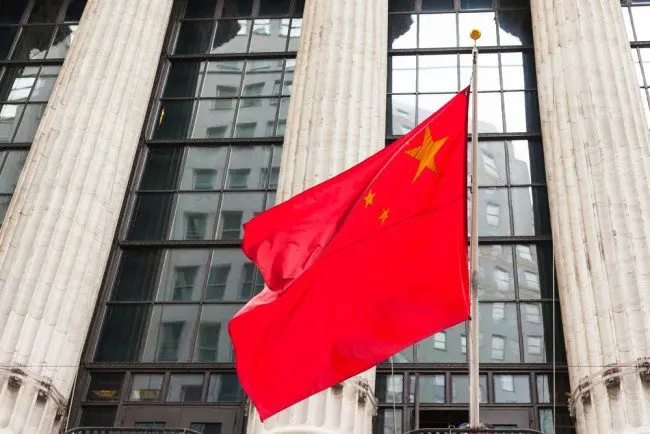The mainland benchmark index, the Shanghai Composite, fell sharply by 8.4 per cent to 3,211.75 points, extending last week’s losses.
The sell-off continued despite China’s latest attempts to reassure investors, according to The BBC.
Over the weekend, Beijing said it planned to let its main state pension fund invest in the stock market.
Under the new rules, the fund will be allowed to invest up to 30 per cent of its net assets in domestically-listed shares.
The fund will be allowed to invest not just in shares but in a range of market instruments, including derivatives. By increasing demand for them, the government hopes prices will rise.
The Hong Kong Hang Seng index followed the mainland’s sharp decline, dropping 4 per cent to 21,523.57 points in early trade.
Simon Littlewood, president at business advisory firm ACG Global told the BBC there were concerns that the world’s second biggest economy was “a one-trick pony as they have been trying repeatedly over the past few months to put more liquidity into their economy”, yet so far have failed to calm markets.
Over the past week, China’s benchmark Shanghai Composite fell 12 per cent, adding up to a 30 per cent drop since the middle of June.
The sharp fall sparked a global sell-off, with the Dow Jones in the US losing 6 per cent, while the UK’s FTSE 100 posted its biggest weekly loss this year of 5 per cent.
Earlier this month, the Chinese central bank devalued the yuan in an attempt to boost exports.
Elsewhere in Asia, the region’s biggest stock market, Japan’s Nikkei 225 traded 2.8 per cent lower at 18,907.39 points in Monday morning trade. It marks the Nikkei’s lowest level in nearly five months.
In Australia, the S&P/ASX 200 was down by 2.9 per cent to 5,063.50 points.
In South Korea, the Kospi index followed the region’s lead, trading 1.4 per cent lower at 1,850.56 points.
Over the weekend, the International Monetary Fund weighed in on the global sell-off in an attempt to avoid further market panic.
China’s economic slowdown and fall in equities was not a crisis but a “necessary” adjustment for the economy, a senior IMF official said on Sunday.
“It’s totally premature to speak of a crisis in China”, Carlo Cottarelli, IMF executive director representing countries such as Italy and Greece on its board, told a press conference, reiterating the international lender’s forecast for a 6.8 per cent expansion of the Chinese economy this year, below the 7.4 per cent growth achieved in 2014.
On Friday, figures showed China’s factory activity in August shrank at its fastest pace in more than six years.
This came after official figures showed the country’s economic growth continuing to slow. For the three months to the end of July, the economy grew by 7 per cent compared with a year earlier – its slowest pace since 2009.


